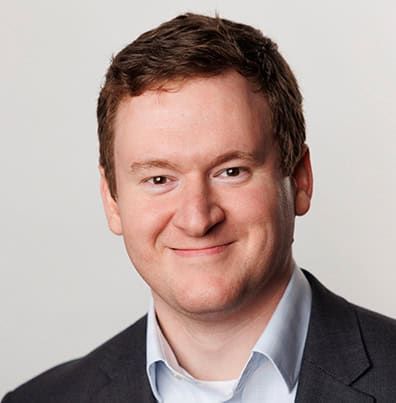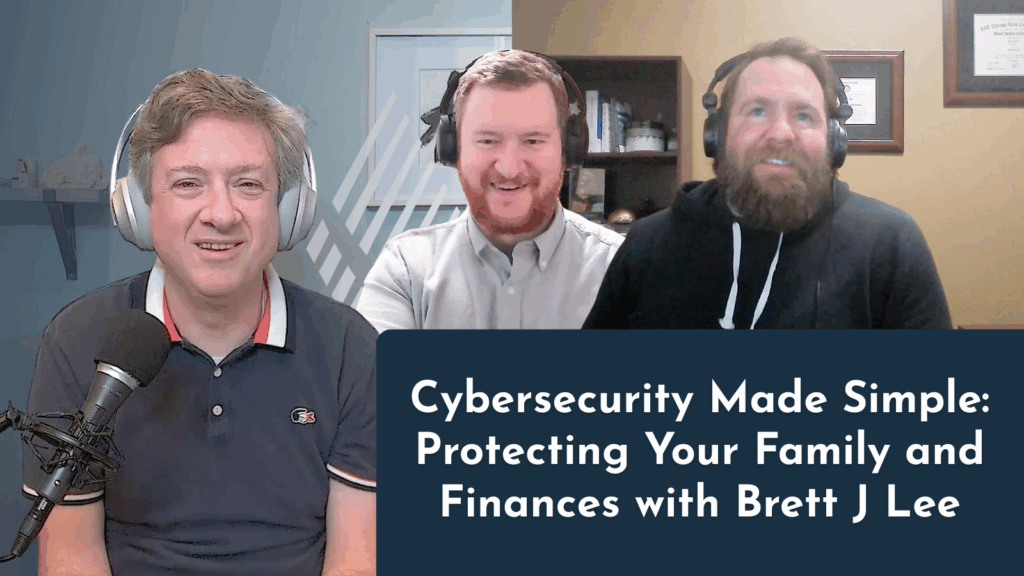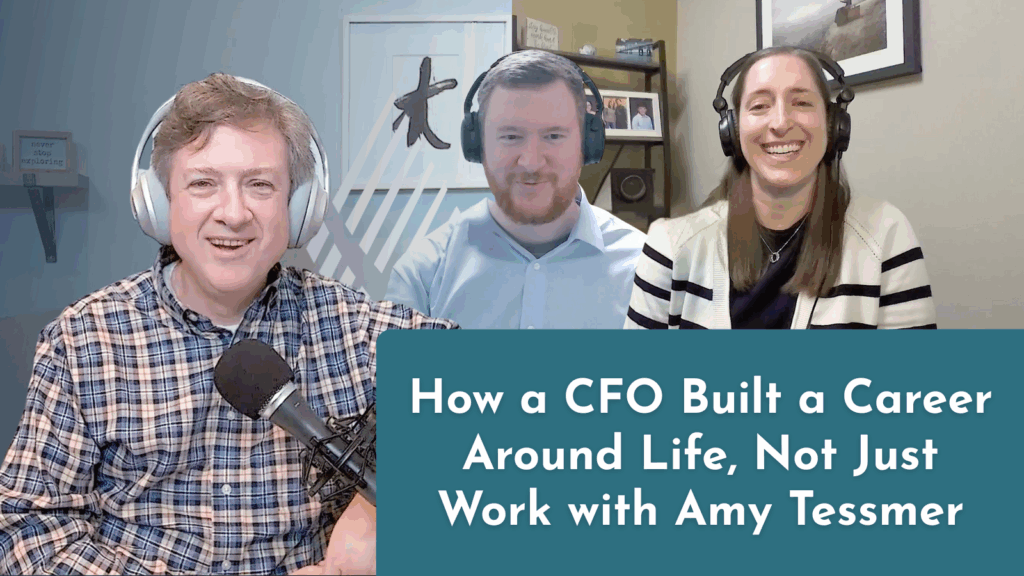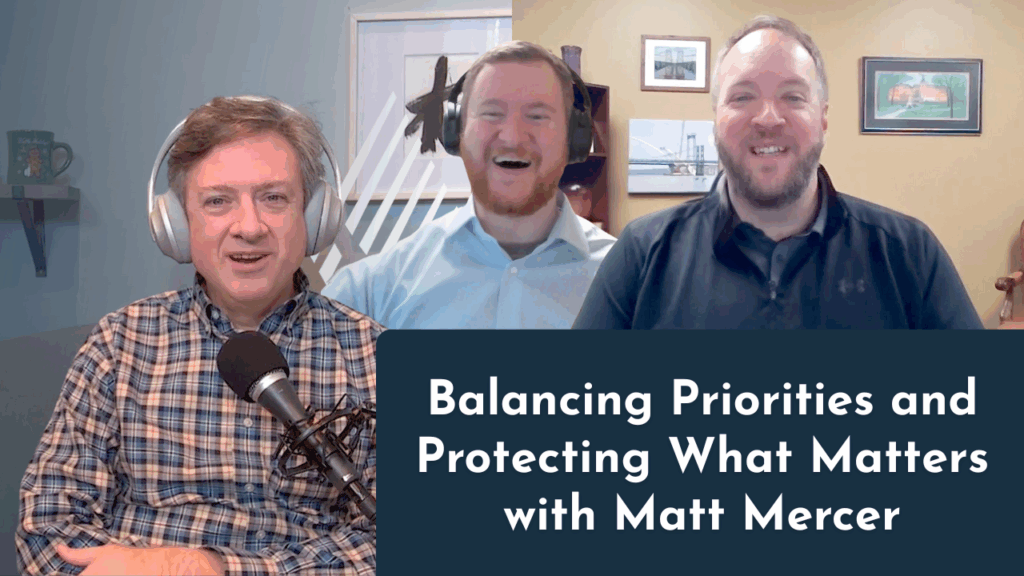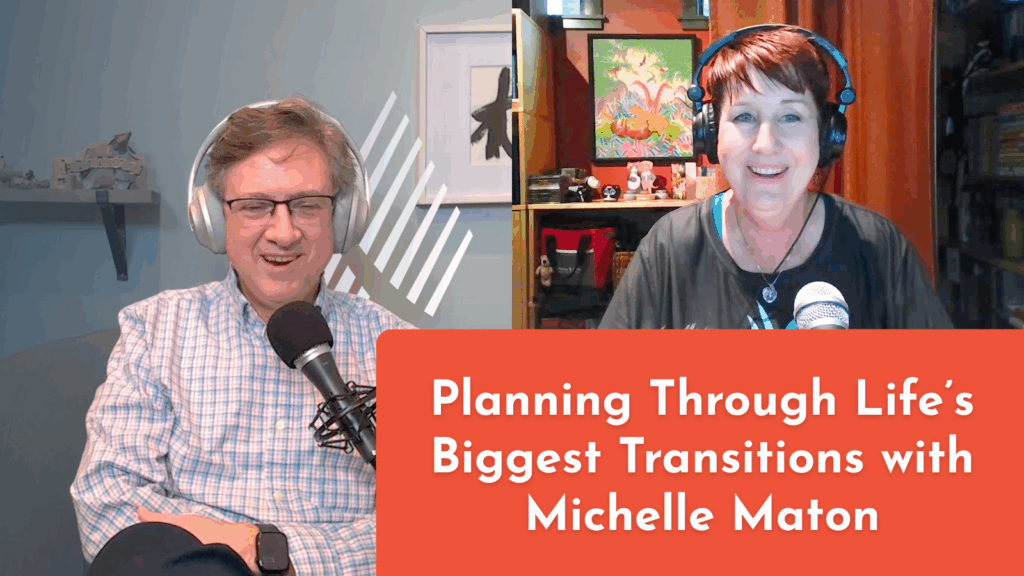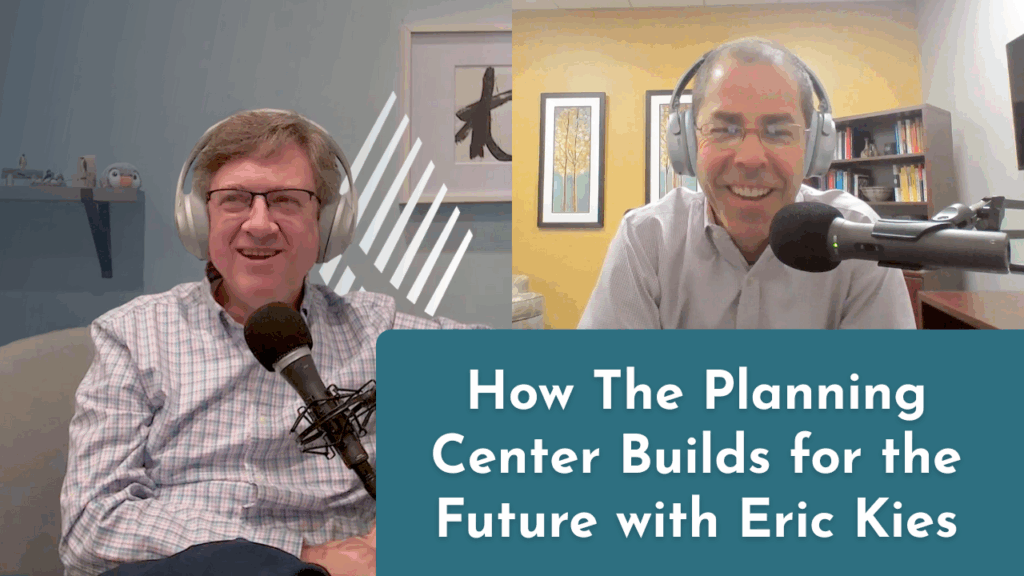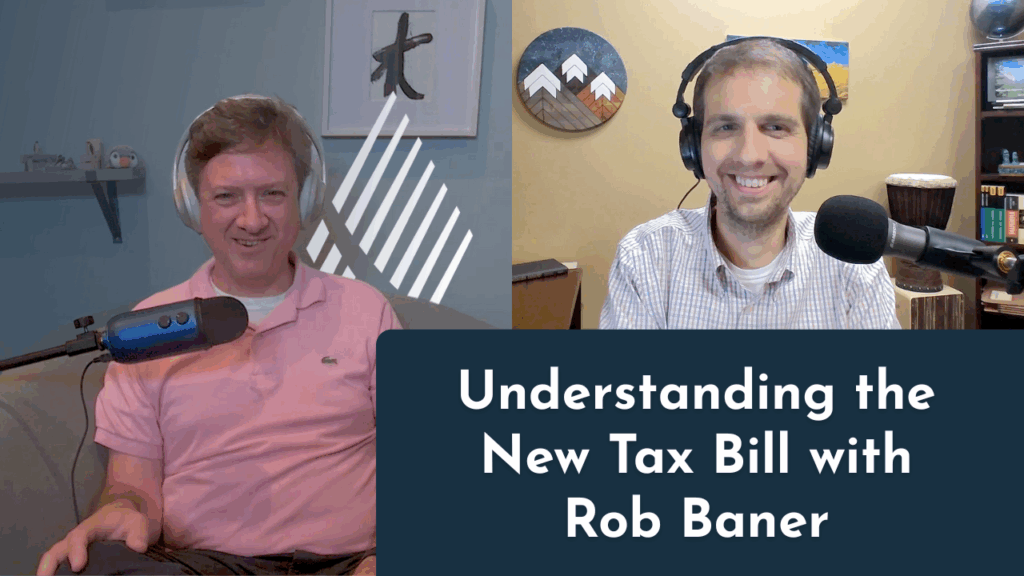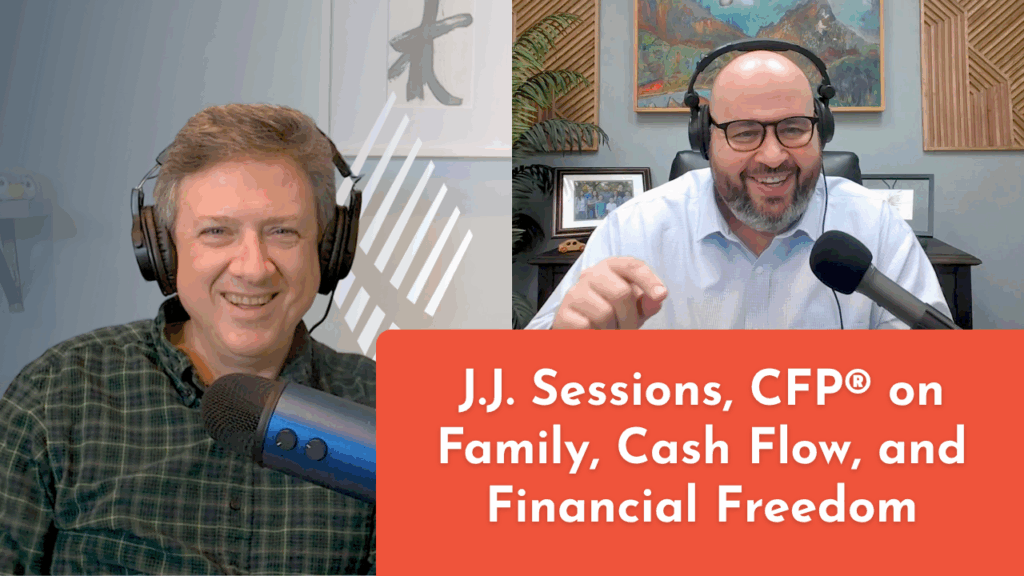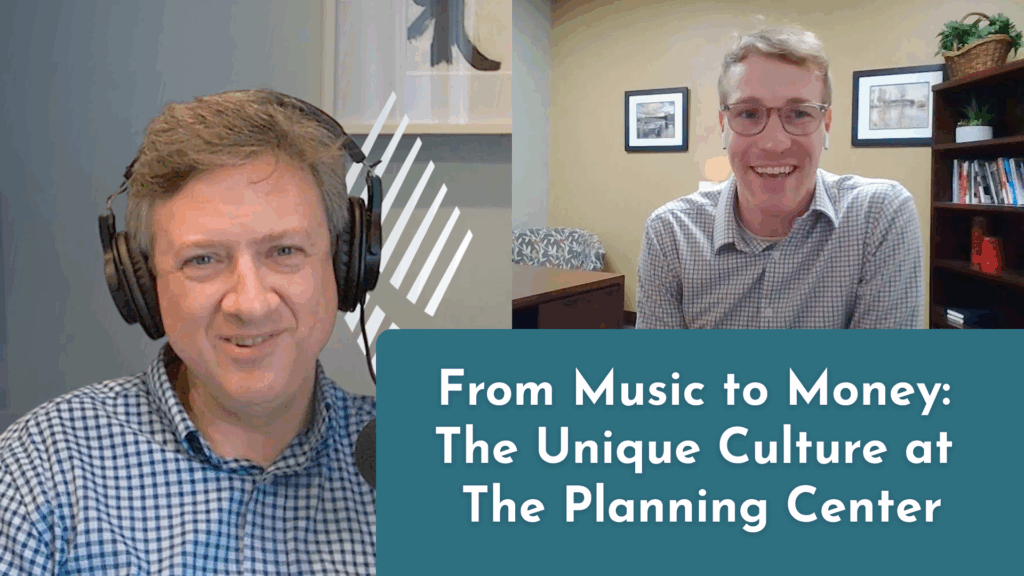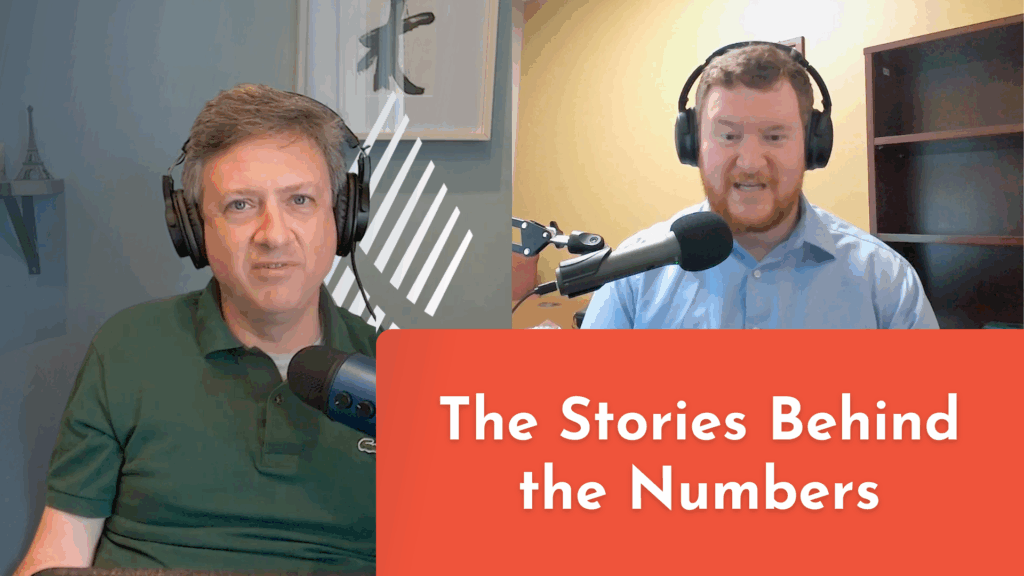[00:00:00] **Patrice Sikora:** Every number on a balance sheet tells a story, late nights spent building something meaningful, the risks taken, the difficult conversations, the lessons learned along the way. But true wealth is not measured in dollars. It’s woven into the stories that we create, the experiences that shape us, and the memories that outlive us.
[00:00:21] **Patrice Sikora:** Welcome to the Living Beyond Numbers Podcast with Jude Boudreaux from the Planning Center. This show is not about spreadsheets and financial jargon. It’s about real conversations and powerful stories. That help you align your money with your values, your dreams, and your legacy, because at the end of the day, it’s not about how much you have, it’s about the life you wanna live and the stories you leave behind.
[00:00:46] **Patrice Sikora:** Now onto the show.
[00:00:50] **Jude Boudreaux:** Welcome to another episode of Living Beyond the Numbers podcast. I’m your host, Jude Boudreaux, and I’m really excited to have, uh, one of my partners at the Planning Center here with us [00:01:00] today. I’ve got, uh, Caleb Arringdale. Hello. Nice to be here. Yeah, and I think I blew your last name. I never know if I,
[00:01:08] **Caleb Arringdale:** it was very close, Dale.
[00:01:09] **Caleb Arringdale:** That’s fine. I respond to anything.
[00:01:11] **Jude Boudreaux:** Yeah, I know, but it’s like, it’s just very Arringdale in my head, like Exactly. So
[00:01:15] **Caleb Arringdale:** yeah, no one knew what my last name was about at all until Frozen came out. And then, and then everyone said, wait, Arringdale, are you Norwegian? It’s like, well, actually, yes I am. And then just clicked for everyone.
[00:01:25] **Jude Boudreaux:** Oh, okay. Well, it explains lots of things now, so I got it. Um, great. Well, Caleb, uh, why don’t you tell us a little more just kind of about your role here at the Planning Center.
[00:01:34] **Caleb Arringdale:** Yeah, I’ve been here about five years. Joined in July of 2020, so very early pandemic, so it was a pretty fun time to get started here.
[00:01:43] **Caleb Arringdale:** There’s obviously a lot of, a lot of changes going on, but yeah, I’m on the tax team, so. We work with the, the planners here to work on both, like tax strategies for people. So we, obviously, we never want the tax thing to be the most important, but taxes are obviously a really important part of a financial plan.
[00:01:59] **Caleb Arringdale:** [00:02:00] So what we do is we work with our planners to make sure every decision makes sense from a tax perspective, both for like a current year, but also for like the life of like the person and even, you know, the life of their families in many cases when we’re talking about like, estate planning. So, yeah, it’s, it’s a, it’s a, it’s a good time.
[00:02:16] **Jude Boudreaux:** It’s, um, no, I think it’s one of the, you know, the exciting things about the planning process is that ability to look forward through this and not just say, well, here’s the bill come April, but if we, you know, maybe we pay a little more now to pay less over a long period of time, uh, can sometimes be really favorable.
[00:02:31] **Jude Boudreaux:** But just the ability to go through and have that detailed analysis and work is, um, is super important to me. So what kind of brought you into, like the, the industry? How did you get into the tax side of things in general?
[00:02:43] **Caleb Arringdale:** I was, um, so I was supposed to be an attorney my whole life. Thought I’d be an attorney and then for some reason, literally looking at want ads in newspapers, which were a thing when I was, because I’m very old.
[00:02:53] **Caleb Arringdale:** And looking at those, there were just so many jobs needed for accountants that I thought, you know, hey, maybe I get this [00:03:00] accounting thing, you know, I’ll shake and see what happens. Um. Ended up graduating in the midst of the great recession. So great time, great timing on that end. And so jobs were somewhat scarce, but ended up getting a job with a small CPA firm, started doing tax work, audit work, you know, like at the station comp work.
[00:03:18] **Caleb Arringdale:** So kind of like high level bookkeeping stuff. You kind of, what this, what you do is, as a, as a newbie accountant started doing that. Went briefly into, into like private accounting as a controller for a, for a mid-size pizza chain actually. Um, we had about 50 stores. It was, it was, it was a lot of fun, but after about a year it was, you know, public accounting is just so much more interesting.
[00:03:40] **Caleb Arringdale:** So got back into public accounting and then. Uh, just kind of kept doing that, kept kind of churning with that until eventually pandemic hit and realized the place I was at. I liked it, needed a change. So ended up really moving to like tax specific work here at the planning center. So I’ve, I’ve slowly refined from [00:04:00] doing kind of a broad variety of accounting to get more and more niche into just, just taxation now.
[00:04:06] **Jude Boudreaux:** Yeah, no, I think that’s the way most of us, you know, evolve in our careers is from that bit broad to the narrow and um, yeah. And it’s been really exciting to have you as part of the tax team. I think that, you know, the ability to think about taxes holistically within the planning process is always just a huge benefit to our clients and the people that we get to work with.
[00:04:25] **Jude Boudreaux:** Um, so I guess as we start to think about, you know, some of those families that we get. To work with and people were looking at their situation. Um, you know, this episode is really about, you know, things you can do to prepare for your tax situation or how to make it work well. So what do you think is some of the most common mistakes that clients make when they’re getting ready for, you know, the tax season?
[00:04:44] **Jude Boudreaux:** How do you help people avoid that?
[00:04:45] **Caleb Arringdale:** Yeah, so the great thing about the, the planning Center in particular is that we get to be very proactive, right? We’re not waiting. For clients to just bring us up at the end of the year, then say, okay, well this is how we’re going to handle that. It’s like, no, our idea is that we work with people [00:05:00] throughout the year so we know what’s going on.
[00:05:02] **Caleb Arringdale:** The biggest problem is people don’t tell us in all these midyear meetings what’s going on. So, so many examples of this. So the client who you have just a quick meeting on April 12th to review everything before they get it signed, and then they say, oh, by the way, I have this rental property. Or, Hey, by the way, I, uh, lost a six, seven figure amount of money on this, this investment.
[00:05:25] **Caleb Arringdale:** Will that matter? Or some. I can go on and on with various things that have happened, but that’s the biggest issue, you know, people have is it just tell us what’s going on. We’re, we’re here to help you. We’re, we’re trying to keep the process going smoothly. If you hold details from us until the last second, or forget that something’s important, kind of throws things off for us and obviously can make a big impact on your taxes.
[00:05:48] **Jude Boudreaux:** Yeah. Um, and I, I remember jokingly, you know, sending to the tax team this, you know, snippet last tax season of like, you know, like people asking like, oh, do you really need that information? Like, you, like, no, our [00:06:00] accountants like to ask for, you know, extra details during the middle of tax season. Yeah.
[00:06:04] **Jude Boudreaux:** Without needing it. But they’re, chances are, you know, we do need some level of detail and there’s some things we’re going to, if we ask you for it, it’s probably for a tax related reason. We’re always glad to explain it. But, uh, it may not be, uh, you know, apparent at the beginning.
[00:06:17] **Caleb Arringdale:** We get the issue where we’ll send out emails.
[00:06:21] **Caleb Arringdale:** I’ll send like a numbered bullet pointed email. So I have three questions, question one, question two, question three, and the person will respond to the email. Thanks. And I’m like, but, but, but Right. Come on now.
[00:06:32] **Jude Boudreaux:** Yeah. We still need those answers here.
[00:06:34] **Caleb Arringdale:** Yeah.
[00:06:34] **Jude Boudreaux:** Um, yeah, and I think that’s, uh, yeah, I think the, you know, the big advice for anybody listening to this is to.
[00:06:41] **Jude Boudreaux:** Open that door and have that relationship with whoever’s handling their taxes, especially, you know, uh, throughout the year. Right. So we’re in, it’s harder to have those conversations perhaps in the spring, but now mid-year it’s a great time to be talking to people about, you know, their taxes and what do they think they wanna be doing for this tax year.
[00:06:58] **Caleb Arringdale:** Exactly.
[00:06:59] **Jude Boudreaux:** So how do [00:07:00] you think clients can better align some of their goals with tax strategies to, you know, help minimize that picture over time? Yeah,
[00:07:07] **Caleb Arringdale:** it’s, it’s tricky because like all things in, in life, but also in taxation, the answer is, it depends, right? It’s always, it depends. Everyone is different.
[00:07:16] **Caleb Arringdale:** Everyone has different goals. I, I have a client who has. A significant amount of money, but it’s all in IRAs. But their plan for that money is to donate it all. Like 95% of the money will be donated for them. Tax. Tax planning is completely different from someone who says, yes, my goal is to. Fund my children’s education, my grandkids’ education, or my goal is to help, you know, make this kind of future like generational wealth.
[00:07:46] **Caleb Arringdale:** My goal is to do that and pass this on to my, to future generations, that these are obviously totally different plans. Obviously the amount of money someone plans on leaving. Some people say, Hey, I worked really hard for this money. Yeah, I’ll leave a little bit for my kids, but [00:08:00] I intend on spending most of this.
[00:08:02] **Caleb Arringdale:** Well, great. That’s a very different tax strategy from hey. I wanna leave like a large inheritance of my children or, or the other one that, which is strange. Someone says, yes, I have a significant amount of wealth and my, my children are all teachers, which, you know, unfortunately is not a super high paid profession.
[00:08:39] **Caleb Arringdale:** So it really depends so much. But the key is. The tax strategies really make a difference because it it in like if I, in investing, in financial planning, we’re thinking about how do we improve things by one, two, 3%? Well, tax planning, if we can tax something at 12% instead of [00:09:00] 22% or, or 24% instead of 35%, that’s a huge savings right there.
[00:09:04] **Caleb Arringdale:** So our goal is to try to minimize those over the lifetime and what your goals are really impact how we decide to do that.
[00:09:13] **Jude Boudreaux:** And, um, it’s so true that it’s really individualized. I think it’s one of the values of planning is not knowing, uh, not just kind of looking something up on the internet and knowing the calculation, but saying, well, that’s true, and here’s how this would apply to your situation.
[00:09:27] **Jude Boudreaux:** I. If you were to make some gifts to a charitable cause or to, uh, one of your loved ones. Um, so there’s so many tools in that kit that it, and it’s always changing. Um, uh, I keep getting questions about, you know, the tax laws and what’s going to happen with this next tax package. And I can tell you, I have no idea what’s going to happen with this next tax package.
[00:09:47] **Jude Boudreaux:** How do you all, as a, like, as professionals on the tax side, how do you prepare for some of those kinds of changes and get ready for, you know, the uncertainty of what might bring.
[00:09:57] **Caleb Arringdale:** Yeah. Uh, when we get that question, our usual response is, you know, the [00:10:00] crystal ball is still broken. We don’t know. We, we can’t anticipate, like on the financial side, you can’t anticipate where the stock market’s going to do.
[00:10:06] **Caleb Arringdale:** You can make guesses, but you don’t really know. On the tax side, the same thing. We, we can make guesses, we can see tax laws that, that there’ll be progressing maybe through Congress, but. There’s so many times there’s a law that we think is going to pass and we start to, uh, plan for that. And we’re sending out client communications and making, uh, just planning for this eventuality when all of a sudden last second gets vetoed, doesn’t get passed, something happens, and boom goes away.
[00:10:33] **Caleb Arringdale:** So one thing we do, we try to stay really up on legislation. So we, we are constantly reading various tax blogs, various, uh, you know, congressional releases on what actually might happen, and then we try to. Help clients adapt for that along the way. Uh, frequently there can be a lot of. There can be overreaction to this.
[00:10:53] **Caleb Arringdale:** Some people read everything in the news and think, oh wow, I need to start doing this because this might happen. And so [00:11:00] much of what we actually see in the news doesn’t actually come to pass. Or so often there’s fine print that changes it. So maybe for a tiny subset of people this might happen, but for the vast majority it won’t.
[00:11:11] **Caleb Arringdale:** So a lot of it is we just have to stay up and really look for that fine print so we can prepare people for what actually. Does happen versus what, you know, we think might happen.
[00:11:20] **Jude Boudreaux:** Yeah. So I think the, yeah, the, if I can think of the number of times we’ve been asked a question about something that a candidate said and then what actually comes out of the package.
[00:11:29] **Jude Boudreaux:** Exactly. Exactly. It’s always completely different. Mm-hmm. Um, for sure. Yeah. So try not to over, over identify with some of those campaign promises. because we all know how those end up. Yeah. Um, well, all right, so. In terms of then, like, not trying to predict the future, but it’s like, what can you do now? So what do you think people can do now to try to help next tax season go smoother?
[00:11:48] **Jude Boudreaux:** What, what are simple things they can do to just prepare for that?
[00:11:51] **Caleb Arringdale:** Like the simplest thing besides obviously talk with your accountant, like, we’re here to help. That’s obviously the, the, the best thing you can do. [00:12:00] Keep us informed about what’s going on. Be besides that, I always tell people have a tax folder.
[00:12:06] **Caleb Arringdale:** Every time you get a tax doc in the mail, put it in that folder. That seems like a no brainer. Seems obvious, but doing that solves like 90% of your tax problems. The biggest issue we’ve actually had this year is with electronic tax docs. So more and more places are starting to charge a fee to send you paper copies, and so everyone is opting into electronic delivery, which is great.
[00:12:26] **Caleb Arringdale:** I do the same thing, but then people just get this email and it’s buried with their other 10,000 emails and they never open it. They never print it, and then it’s a document we never have. And that’s okay sometimes because if we know we’re looking for the document, we just tell the client, Hey, I think you’re missing this.
[00:12:43] **Caleb Arringdale:** Right. Sometimes this could be the first year. It could be an unusual thing. We have no idea to ask for it. Client hasn’t told us about it, and we just dunno about it. And then six months later, the IRS sends them a notice, Hey, you never, you know, paid taxes on this income or [00:13:00] reported this income and. And we’re like, we have no idea.
[00:13:02] **Caleb Arringdale:** And then it’s try to talk to the company, search, search through all emails. Usually if they send them a code that that link is expired. So we have to, it’s just a whole pain. So the new thing I’m saying, telling people is all these electronic like tax docs that you get when you see that email stop, honestly, print the document, put that in your tax folder too, because that is how a lot of stuff is going to miss now.
[00:13:25] **Jude Boudreaux:** I have to say, I, I dislike the idea of printing all those things, and yet I do this for myself. Yeah. Because mm-hmm. Uh, there’s just so many things throughout the year of the donation to somebody’s walk to raise money for charity. Mm-hmm. Exactly. Or, um, or yeah, or that investment sold. And so now we have a document, but I don’t need it for another few months.
[00:13:45] **Jude Boudreaux:** Um, but setting those things aside, maybe you’ve got a good digital system so you can print it to PDF and save it somewhere. And if you do, great. Yeah. Yeah. Um, but yeah, the keeping those things together makes a, a big difference and saves a lot of stress when it comes down to trying to find [00:14:00] them in February and March.
[00:14:01] **Caleb Arringdale:** Yeah. Yeah. If you have a good digital system, use it. Fantastic. But unfortunately, I’d say for the majority of people who don’t quite have that level of system set up, yeah, just print it. It, it’s dumb. We’d like to live in a paperless world, but honestly, it’ll save you headaches down the road.
[00:14:15] **Jude Boudreaux:** Yeah. And yeah, I’ve never, I’ve never managed to live my way into a good digital system, so I, um.
[00:14:21] **Jude Boudreaux:** As much as we’d like to think we’re paperless, uh, it still is part of our world and, uh, makes it makes the season work well.
[00:14:28] **Caleb Arringdale:** Yeah, exactly.
[00:14:29] **Jude Boudreaux:** Yeah. So everybody’s tax situation obviously is really individual and so there’s no blanket strategies that apply to everybody. And I’m going to ask you a question about blanket strategies.
[00:14:37] **Jude Boudreaux:** So, uh, if there were, you know, some things you think people, you know. If individuals and families who have higher earnings, who have maybe more wealth that um, you know, they can be looking at or talking with their tax professionals about in the, you know, what do you think? Can you give a few recommendations to some of those things?
[00:14:54] **Caleb Arringdale:** Yeah, I was thinking of just a few kind of, yeah, these blanket policies that that can [00:15:00] usually be applicable for many people. Uh, one is tax loss harvesting, and this is a great one that you usually have to do in conjunction with your financial planner with kind of investment in person, but. This can be great, especially this year where investments have just been kind of nuts.
[00:15:14] **Caleb Arringdale:** There’s been, you know, there’s obviously some huge downturns in the market, then some upswings whenever we have these big downturns. Tax loss harvesting is great. So what that is basically, you, you, you take like a stock, like a mutual fund and ETF or whatever. You sell that and then you put that money and you sell that at a loss, right?
[00:15:32] **Caleb Arringdale:** And you think, well, hey, that’s bad. Right? Uh, maybe, but not necessarily in this case. So we sell that at a loss. Then we use that money and buy a, substantially similar, but different enough that the IRS approves of it, like different type of stock or different type of like, uh, ETF exchange, trade fund. Then we wait our 30 days to get around some IRS rules.
[00:15:52] **Caleb Arringdale:** Then we buy it back into that original position. So functionally that money has never left the market. That money is still doing the exact same thing [00:16:00] that would have done. Now you’ve recognized some losses, some capital losses, and that will help you offset capital gains and can even help offset your, just your normal income.
[00:16:10] **Caleb Arringdale:** And obviously it’s, you don’t want to have to have losses, but if you have losses and a year like this, that’s great. That’s a way to help realize some of those. And actually. You know, get a little tax break on these losses without actually costing you real money. So I think tax loss harvesting is a good idea, especially for those with higher wealth.
[00:16:30] **Caleb Arringdale:** It’s at least something to look into. It’s one apply for everyone, but I. You know, certain, so here have been down a lot, so it could be something to look at, um, for younger families. Uh, childcare expenses, uh, we’re coming up under summer, so you have all these day camps. These, these classes for your kids, tennis camp, whatever this might be.
[00:17:11] **Caleb Arringdale:** So that can be worth keeping. Some of those, some of those like. Receipts for that stuff. Uh, overnight camps don’t count, so. You know, that’s the kicker. But for most of these day camps, that probably qualifies.
[00:17:30] **Caleb Arringdale:** So just keep track of the information. And that’s not a, a lot of credits get income limited, right? So if you have a really high income, you lose out on those. And this child, like dependent Care credit, it’s somewhat limited by income, but it still exists. So even if you’re higher income, it’s worth keeping track of, of, of, of these expenses because you can at least get something.
[00:17:30] **Caleb Arringdale:** So you know, why not? The final thing I think I’ll talk about is, is, uh, Qualified Charitable Distributions for people over 70 and a half. So let’s say you so. You have to be over 70 and a half. That’s the the first thing. And you have to have money inside like an IRA, right? So like a traditional IRA. But if you do, and you have any like charitable goals, the best way to do those is via these Qualified Charitable Distributions, or we call them [00:18:00] QCDs usually.
[00:18:55] **Jude Boudreaux:** I think for you, there’s people who wanted to you make a one day [00:19:00] gift to a university or a school or, you know.
[00:19:03] **Jude Boudreaux:** Absolutely. Or their, their, their faith community mm-hmm. Can be a really powerful tool in a way to do that. Um, yeah. And I mean, on the giving thread, I’ll just add in a, a plug for, uh, donor advised funds, uh, occasionally we see another great
[00:19:17] **Caleb Arringdale:** thing to use.
[00:19:17] **Jude Boudreaux:** Yeah. Right? because occasionally we see people who have a lot of income.
[00:19:21] **Jude Boudreaux:** But you know, perhaps they’re not itemizing their deductions so. Putting money into a donor fund lets them lump in several years worth of giving into one year, even better. Sometimes we can fund that with a stock that is appreciated a lot or maybe that they received from their company, uh, and take a deduction on that without paying any capital gains.
[00:19:40] **Jude Boudreaux:** Uh, it really makes a nice tool for us to be able to, um. Fund a tool that not only can be used to make the giving and make your tax picture work better. I love tools like that. because they provide conversation starters for families. Mm-hmm. Yeah. Right, exactly. So if you wanna talk with your, your children about giving, say we created this giving fund and now.
[00:19:58] **Jude Boudreaux:** What’s the cause you’re, you [00:20:00] care about can go do some research and we’ll learn about which ones work well, and then maybe we can do some giving from our family giving pool. Um, and any of those things that help facilitate a conversation across generations, I think is super valuable for more than the tax benefit.
[00:20:14] **Caleb Arringdale:** Yeah, absolutely. And those, those, those DAFs, those Donor-Advised Funds can be really useful. We’ve even used Donor-Advised Funds in conjunction with LAR large Roth conversions. And so that will help you kind of ameliorate some of the tax consequence of like a big Roth conversion. So those Donor-Advised Funds can be really powerful, especially if you have highly appreciated stock.
[00:20:37] **Caleb Arringdale:** Like I, I think the classic example is Apple stock. You’ve had Apple stock. If you sell that, obviously huge capital gains, you’ve had this for like 20 years or whatever. But instead of, but if you have charitable intent. Put some of that in that Donor-Advised Fund. You don’t have to pay capital gains on it.
[00:20:52] **Caleb Arringdale:** You get a deduction for their current fair market value. It’s a really incredible way to do it.
[00:20:57] **Jude Boudreaux:** Nice. Yeah. And yeah, again, just [00:21:00] kind of another plug on the benefit of that forward looking tax planning. because yeah, occasionally we can add in those tools where, yeah, maybe we’re going to pay more taxes on this Roth conversion.
[00:21:08] **Jude Boudreaux:** Now we’ll get some deductions on making some charitable contributions. And then, um, I. Take money that over a long time then becomes really tax advantageous for that client, for the next generation. Um, so it, it’s a, becomes a very powerful tool and we add the impact of time onto some of these things. Yeah,
[00:21:26] **Caleb Arringdale:** exactly.
[00:21:27] **Jude Boudreaux:** I mean, I thinking just kind of about like, you know, within the firm, you know, when we work with, you know, some of these high income families in particular, what do you think is different about the way that we work with clients at the planning center that you find is valuable, especially compared to maybe some of your other industry experience?
[00:21:43] **Caleb Arringdale:** Yeah, we use the word a lot, but it’s because it’s true, like proactive. We are constantly meeting with clients and working with them on their issues. I’ve worked with when I was just in, you know, the, the public accounting world, I. We worked with a lot of financial [00:22:00] planners, or, well they call themselves financial planners, but really just investment guys.
[00:22:03] **Caleb Arringdale:** And they would meet with clients maybe once a year, maybe once every couple years. They would, you know, slap ’em on the back and say, everything’s looking great, Bob. And that was the extent of their relationship and that, for that, that got, you know, their really high, you know, fee from them, which. Honestly, the clients never even knew how much they were paying because it was just, it was all so buried in in minutiae.
[00:22:24] **Caleb Arringdale:** Whereas we have the totally different approach. So we’re meeting with clients three, four times a year, even more sometimes when, when they have need, when they have like a special needs. We are looking at so many different factors of their life, helping them plan, right? Not just managing investments, but really helping them plan for their future, their kids’ future.
[00:22:45] **Caleb Arringdale:** And the fact that we’re meeting with clients so often helps us to develop a relationship with them, which helps us help them even better. So I think the biggest difference is that we actually have like. Solid face time with clients. It’s not just [00:23:00] in, in the accounting world. You see clients once a year tax season, right?
[00:23:04] Caleb Arringdale: That’s the only time you’re usually seeing these, these clients. And maybe you might have a phone conversation midyear sometime to do a projection, but that’s, that was usually about it. Whereas here, it’s completely different. We really have time to, to make a solid plan and, and for us, just for like the tax.
[00:23:20] Caleb Arringdale: The tax benefit of that is that by the time we we get to tax season, the tax return’s not that hard because we know exactly what happened. We have anything difficult already mapped out. We’re just come tax season, we’re just plugging in numbers, so that’s not hard. We’ve done all the hardware beforehand and so that’s, it really helps the clients when we can do that.
[00:23:39] Jude Boudreaux: Yeah. Oh, fantastic. Um, all right, well, I’m going to pivot over to a couple of rapid fire questions as we, uh, work on kind of wrapping these podcasts up and, uh, bringing ’em all together. So, um, all right. Important question. What’s your favorite animal?
[00:23:54] Caleb Arringdale: So, it’s probably a monkey, although it might be actually the ring toad sloth.
[00:23:59] Caleb Arringdale: Uh, [00:24:00] I read a fact about sloths that I just enjoy so much that. They’re so slow. They grow moss on them, which we all know, I think. But I think that’s a delightful thing about sloths. But also they’re not the world’s smartest creature. In fact, they’ll sometimes in the forest, they’ll grab onto their own arms thinking their tree branches and then like.
[00:24:20] Caleb Arringdale: Fall and have to catch onto something else, and yet somehow they’re still alive and they look so, so happy. So, you know, I gotta give it up for the, for the Ring Tail Sloth big fan.
[00:24:28] Jude Boudreaux: Yeah. Oh, I love that. I think we probably all have our ways where we think we’re grabbing onto something else, but it’s really ourselves and falling.
[00:24:34] Jude Boudreaux: Exactly. And they
[00:24:35] Caleb Arringdale: seem so happy. So yeah.
[00:24:37] Jude Boudreaux: Good on them. Totally. Um, all right, so what is it always worth spending more money on?
[00:24:43] Caleb Arringdale: Uh, the classic examples are like beds and shoes, anything. You’re obviously using a lot. I. The other thing, honestly, I think food, like quality food can make such a difference in your life.
[00:24:54] Caleb Arringdale: Doesn’t have to be super expensive, but just buying good stuff will just make you feel better.
[00:24:58] Jude Boudreaux: Yeah, nice. [00:25:00] Um, best money you’ve ever spent.
[00:25:03] Caleb Arringdale: Uh, probably it’s either experiences or honestly like the car we just got, I actually really like, it’s the first car I’ve ever bought because like I wanted it and Oh, it’s fantastic.
[00:25:12] Jude Boudreaux: Big fan. Yeah. Hey, uh, I tell clients all the time, like, spend on the things that you enjoy and so yeah, if that is great. If.
[00:25:19] Caleb Arringdale: I’m
[00:25:19] Jude Boudreaux: not even a
[00:25:19] Caleb Arringdale: huge car guy, but it’s just I’m traveling a lot and traveling much more comfortably than I was before has made a world of difference. So
[00:25:26] Jude Boudreaux: it’s been great. I can, I can hear that.
[00:25:29] Jude Boudreaux: Um, all right, so tell me about the last achievement you celebrated and what was it?
[00:25:35] Caleb Arringdale: End of tax season, that’s always a big achievement. You know, April 15th comes around, uh, we close up the office around four, go get food and drinks and kind of chill. I celebrated the next day by grabbing brunch, uh, having some mimosas and sitting on the couch and reading for the rest of the day.
[00:25:50] Caleb Arringdale: So it was pretty great.
[00:25:51] Jude Boudreaux: Nice. Yeah, I don’t think a lot of industries have that same pressure day that it’s such a. It’s such a final thing. Yeah. Like in our, [00:26:00] in our world, you know, December 31st rolls around and there’s things that have to happen by then. Mm-hmm. But not all of our clients have to, but by April 15th, everybody has to do something.
[00:26:08] Jude Boudreaux: Exactly. And it’s a, a real jam.
[00:26:10] Caleb Arringdale: Yeah, absolutely. Yeah. And every year I. Taxes will get more complicated, but that just means that custodians and other companies who send out required tax documentation, they are also get delayed. So every year, the timeframe we actually have to finish, everything gets slightly compressed even by a couple of days.
[00:26:45] Jude Boudreaux: Yeah. And we see that and then company sends, uh, revised forms and then you gotta update it all again.
[00:26:52] Caleb Arringdale: Exactly.
[00:26:53] Jude Boudreaux: All right. Um, so travel, favorite place to visit?
[00:26:57] Caleb Arringdale: Inside the US probably Jenny [00:27:00] Lake in the, in the Grand Tetons. Absolutely stunningly beautiful, big fan.
[00:27:20] Jude Boudreaux: Nice, awesome. And, um, dream trip you haven’t done.
[00:27:40] Caleb Arringdale: Uh, the biggest dream trip is to an Antarctica. Like that seems like a bit of a crazy trip, but the whole idea would be going to go down to the, uh, go down Argentina, you know, work my, work our way through there, and then to our, to Antarctica. Although my wife says there’s absolutely no way she’s doing that, but I have a cousin who said he’d do it with me, so that’d be cool.
[00:27:44] Jude Boudreaux: Nice. Yeah. All you need is one companion. Exactly. Um, now I, I think I mentioned this to you the other day. Every time I sit down to write a goals list to get, the first two are always 50 states, seven continents.
[00:27:54] Jude Boudreaux: So, um, so I’m with you on that one. Uh, all right, well, um, one last [00:28:00] question. So, if you had to go buy some happiness, what would you buy and how much would it cost?
[00:28:06] Caleb Arringdale: I’m a, I’m a geek from way back. So for me, if I’m truly just buying happiness, it’s computer parts. So, um, that means going to Tiger Direct and buying motherboards, graphics cards, um, you know, a couple thousand dollars, you can, you know, two, $3,000 can go pretty quick on that.
[00:28:29] Caleb Arringdale: I do this very infrequently, but when I get to do it, oh, it’s, it’s very exciting for me. Nice. Yeah. Again, like every about what you love right? Is not, yeah. Yeah. And otherwise it’s experiences like, you know, a new trip, a new place, something to do. I’m a big fan of experiences, but true happiness is, you know, is, is pressing by in a brand new video card.
[00:28:48] Jude Boudreaux: I love that. Well, great, Caleb. Well, um, thanks for sharing some time with us this afternoon. Really enjoyed the conversation. I hope that our listeners found it valuable too. Um, so for those of you who are [00:29:00] listeners out there, please, uh, like and subscribe. Um, I. Send the comments to us. I’d love to hear your feedback on the podcast.
[00:29:07] Jude Boudreaux: I’m jude@theplanningcenter.com and you can reach Caleb at caleb@theplanningcenter.com. Um, the podcast episodes will be hosted at theplanningcenter.com slash pod so you can go there to find show notes and any other details or things that you might want to get in touch with us. So thanks again for listening this afternoon to The Living Beyond the Numbers podcast and hope you have a great rest of your day.
[00:29:32] Patrice Sikora: Thanks for tuning in to the Living Beyond Numbers podcast. If today’s episode resonated with you, be sure to follow us so you never miss a conversation For more resources and to learn how we can help you align your wealth with your life’s purpose. Visit us@theplanningcenter.com or give us a call at (888) 333-6986.
[00:29:56] Patrice Sikora: The information covered and posted represents the views and opinions of the guest [00:30:00] and does not necessarily represent the views or opinions of the planning center. The content has been made available for informational and educational purposes only. The content is not intended to be a substitute for professional investing advice.
[00:30:12] Patrice Sikora: Always seek the advice of your financial advisor or other qualified financial service provider with any questions you may have regarding your investment planning. Investing involves the risk of loss. The information presented on this program is believed to be factual and up to date, but we do not guarantee its accuracy and it should not be regarded as a complete analysis of the subjects Discussed discussions and answers to questions do not involve the rendering of personalized investment advice, but are limited to the dissemination of general information.
[00:30:41] Patrice Sikora: A professional advisor should be consulted before implementing any of the options presented.



